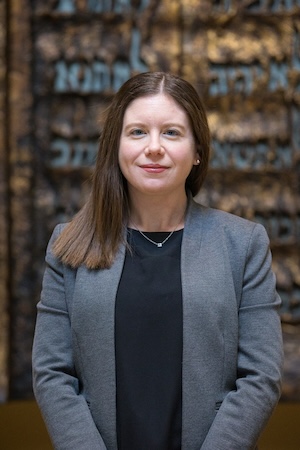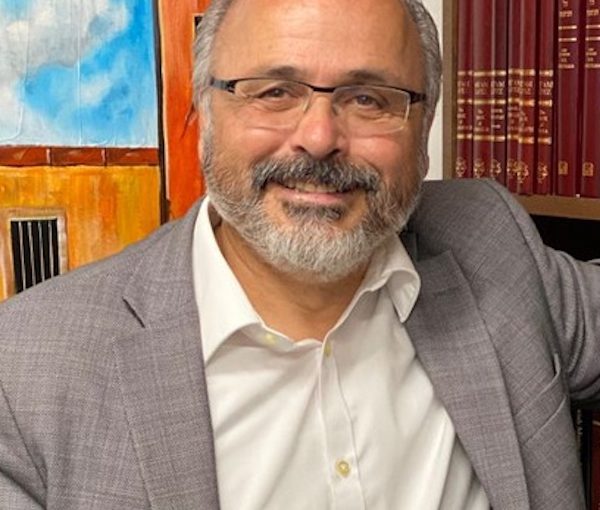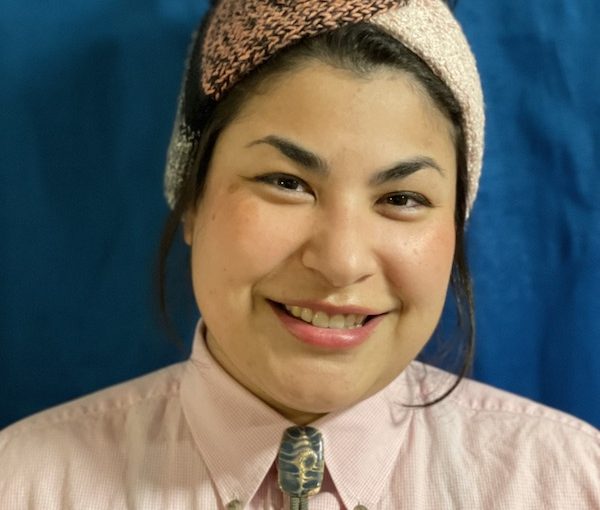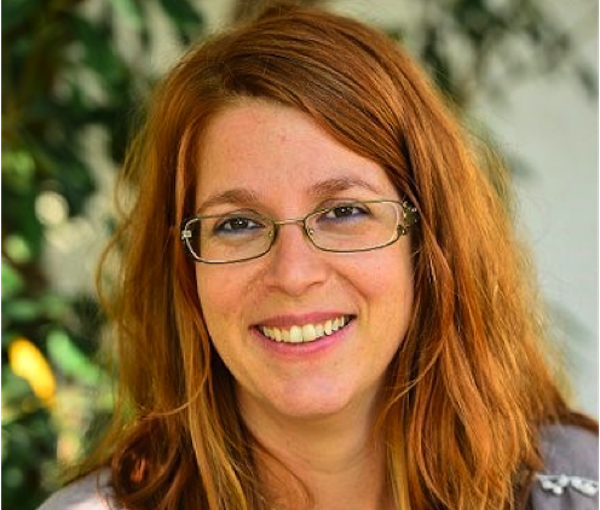Rabbi Liz P.G. Hirsch spoke on the topic Just for this Moment: Stepping Up to Lead. (screenshot)
Rabbi Liz P.G. Hirsch kicked off the fifth season of Kolot Mayim Reform Temple’s Building Bridges lecture series Nov. 3 with the topic Just for this Moment: Stepping Up to Lead, which drew on her experience and insights into leadership for women, particularly within Reform Judaism.
Hirsch, who hosts the Just For This podcast, is the chief executive officer of Women of Reform Judaism (WRJ), a position she has held since 2023. Started in 1913 as the National Federation of Temple Sisterhoods, WRJ is the women’s affiliate of the Union of Reform Judaism and it represents thousands of women in hundreds of congregations throughout North America.
Now based in Cincinnati, where WRJ was founded, Hirsch spoke about the name of the podcast. The title, Just for This, comes from the point in the Book of Esther when Mordechai tells Esther to reveal her identity and step up to lead: “Who knows, maybe it is just for this moment that you find yourself in a position of leadership.” (Esther 4:14)
In each episode, Hirsch speaks to women who stand out in their field(s) and asks her guests to describe their “just for this moment” or when they found themselves in the right place and time to take on a leadership role.
Hirsch played excerpts from her podcast to give the Zoom audience an idea of what her program is all about. The first clip was of Abigail Pogrebin, an American writer and the president of Central Synagogue in New York City from 2015 to 2018.
Pogrebin is the author of several books, her latest – It Take Two to Torah: An Orthodox Rabbi and Reform Journalist Discuss and Debate Their Way Through the Five Books of Moses – having been released just this past September. While Pogrebin didn’t provide a specific “Esther moment” that took place in her life, she did say it is something one should think about regularly. She said perhaps the question should be asked instead as, “Where do I have a role to play?” For Pogrebin, her purpose is to be a bridge between the person who knows a lot and the person who is afraid of what they don’t know.
“There are many smart Jews out there who have an anxiety of ignorance,” she said. “Sometimes people opt out because, though you are a smart person, you don’t want to appear in places because you don’t know the difference between Sukkot and Shavuot.”
Pogrebin addressed the reluctance at times for women to step into leadership roles out of fear of not having enough experience or expertise when, in fact, they do. She praised Hirsch’s podcast for providing female role models, women who confidently and assertively demonstrate their abilities.
A second clip spotlighted an interview with composer, instrumentalist and prayer leader Elana Arian, who delved into the power of connection. She believes that music can allow for people to connect, even in this time when there are so many issues that polarize individuals.
“It is starting to be quite countercultural to go into communities with the express purpose of bringing people together through music,” she said. “It is really not normal these days to get people to sing together to get more connected to faith, so I feel I bring something to this moment that is specific.”
The final segment Hirsch played for the audience came from a discussion with Cochav Elkayam-Levy, a post-doctoral fellow at Hebrew University in Jerusalem who specializes in gender, conflict resolution and peace. She established and leads Israel’s Civil Commission on Oct. 7th Crimes by Hamas Against Women and Children.
Elkayam-Levy said she felt compelled to do her work, not from bravery but rather that the necessity of the moment called for it. “I wanted to give a voice to the victims and be respectful to their memories,” she said. “I felt that, despite the fact it was difficult, I just felt that this was what I needed to do. That this was my mission.”
Hirsch concluded her talk by saying that “just for this” moments happen for everyone and encouraged listeners to consider when such times have occurred in their lives.
Hirsch was ordained at the Hebrew Union College-Jewish Institute of Religion in New York. Among other things, she has been a pulpit rabbi and she was the founding co-chair of Religious Action Centre of Reform Judaism, Massachusetts. She serves on the National Council of Jewish Women’s Rabbis for Repro Rabbinic Advisory Council and played a key role in the 2020 campaign to pass the ROE Act in Massachusetts. A prolific writer on social justice, spiritual practice and trends in Jewish life, Hirsch has contributed chapters to several publications, including The Social Justice Torah Commentary. Her podcast can be heard at justforthispodcast.com.
Victoria’s Kolot Mayim synagogue titled this year’s speakers series Kvell at the Well: Celebrating the Joys of Being Jewish in response to the Oct. 7, 2023, Hamas terror attacks on Israel, believing “that it is more important than ever to highlight our proud and strong Jewish culture, history and heritage.”
The series press release also explains the symbolism of a well: “It is the source of life-giving water, a community meeting place and a place for divine revelation. Our goal with this series is to inspire and empower Jews to draw from the well of our collective experience and proudly celebrate (kvell about) our shared identity as a people.”
The second speaker in the series was Rabbi Elyse Goldstein, one of the first female Reform rabbis in Canada, and author of ReVisions: Seeing Torah Through a Feminist Lens, on Dec. 8. On Jan. 12, 11 a.m., Ben Freeman, author of the Jewish Pride trilogy, will discuss his latest book, The Jews: An Indigenous People, set to be released in February, in which he puts forward the position that Jews are unequivocally indigenous to Israel.
To register for any of the series lectures, visit kolotmayimreformtemple.com/2024-25-lecture-series.
Sam Margolis has written for the Globe and Mail, the National Post, UPI and MSNBC.





